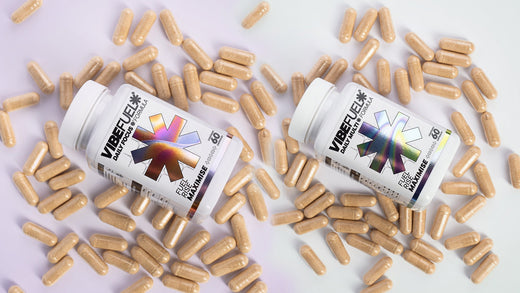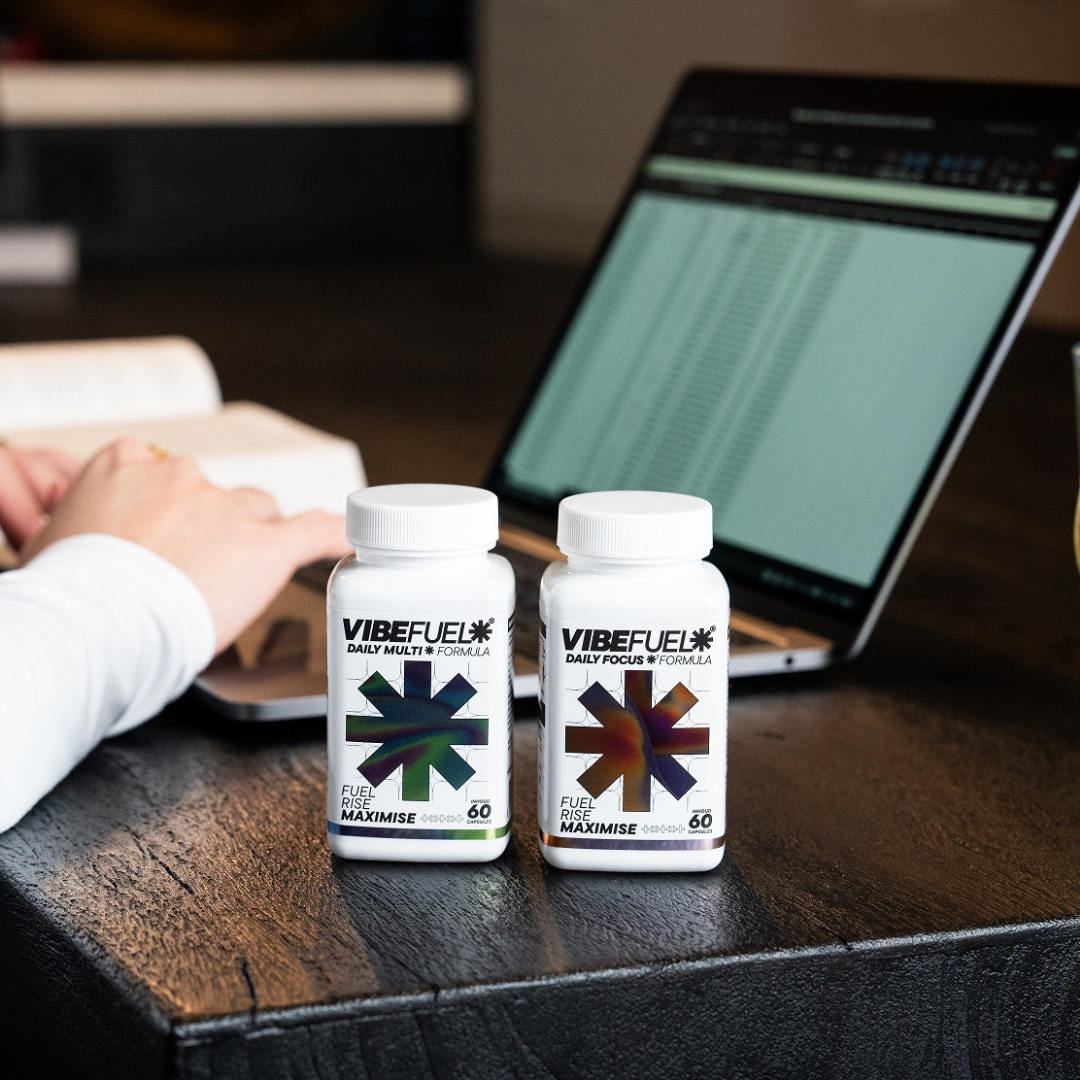Antioxidants play a crucial role in the health of every human being. These molecules are essential for neutralizing free radicals, which can lead to cellular damage and a variety of chronic diseases.
Despite their widely recognized benefits, a complex balance of antioxidants and free radicals is required to maintain optimal health. In this article, we explore the science behind antioxidants, their sources, and their impact on our health.
What are antioxidants?
Antioxidants are molecules that have the ability to prevent other molecules from oxidizing. Oxidation is a chemical process that produces free radicals. These free radicals can damage cells and contribute to the development of chronic diseases such as cancer and heart disease. Antioxidants protect cells by neutralizing these free radicals, thus limiting damage and inflammation in the body.
The term "antioxidant" covers a wide range of substances, including vitamins such as C and E, minerals such as selenium and zinc, and a variety of phytochemicals found in plants, such as flavonoids and carotenoids. Some antioxidants are produced naturally by the body, while others must be obtained from the diet.
What exactly do antioxidants do for your health?
Antioxidants provide protection against the damaging effects of free radicals, which are normally produced in the body as byproducts of metabolism and by exposure to external factors such as tobacco smoke and ultraviolet radiation.
These free radicals can lead to oxidative stress, a state in which the amount of free radicals exceeds the body’s ability to neutralize them, which can cause damage to cells, proteins, and DNA. By neutralizing these harmful molecules, antioxidants help promote overall health and reduce the risk of several diseases.
They play a crucial role in supporting the immune system, reducing inflammatory responses and protecting against chronic diseases, such as heart disease, type 2 diabetes, and certain cancers.
You might also be interested in:
Which substances act as antioxidants?
To better understand the different antioxidants and their specific functions, here is a detailed description of the major antioxidants found in foods and supplements:
- Vitamin C: a water-soluble vitamin and powerful antioxidant, essential for collagen synthesis and the immune system. Rich in citrus fruits, kiwis, berries, peppers, and dark green leafy vegetables.
- Vitamin E (E306 to E309): This group includes several forms of vitamin E, including alpha-, beta-, gamma-, and delta-tocopherols and tocotrienols. These fat-soluble antioxidants protect cell membranes from oxidative damage. Major sources include vegetable oils, nuts, seeds, and whole grains.
- Beta-carotene: a provitamin A carotenoid that is converted to vitamin A in the body. Known for its role in improving vision and skin health. Found in abundance in orange fruits and vegetables such as carrots and sweet potatoes.
- Glutathione: a tripeptide consisting of cysteine, glutamic acid, and glycine. It plays a crucial role in cell protection and detoxification processes. Glutathione is especially rich in avocados, asparagus, and spinach.
- Selenium: an essential mineral that functions as a cofactor for antioxidant enzymes such as glutathione peroxidase. Selenium-rich foods include Brazil nuts, fish, and whole grains.
- Copper: This mineral helps in the formation of superoxide dismutase, an important antioxidant enzyme. Copper is found in shellfish, whole grains, nuts, and seeds.
- Zinc: also a cofactor for several antioxidant enzymes, including superoxide dismutase. Zinc is found in meat, shellfish, legumes, and nuts.
- Flavonoids: an extensive class of polyphenols known for their antioxidant properties. Flavonoids are abundant in foods such as tea, chocolate, red wine, and a variety of fruits and vegetables.
- Polyphenols: including flavonoids and others such as tannins and lignans, these powerful antioxidants are abundant in fruits, vegetables, tea, coffee, and red wine.
- Carotenoids: a class of naturally occurring pigments in plants, responsible for the bright colors of many fruits and vegetables. Examples include lycopene, lutein, and zeaxanthin, known for their protective effects on vision and against certain cancers.
Together, these antioxidants play a complex role in protecting against oxidative stress and supporting health in several ways.
Which foods contain antioxidants?
The human body produces a number of antioxidants itself, but it is also crucial to get enough antioxidants through food. Antioxidants are mainly found in a wide range of vegetables, fruits, nuts, seeds and whole grain products. By following a varied diet, one can guarantee an optimal intake of these essential substances.
Vegetables
In the world of vegetables, we find a rich variety of antioxidants that contribute to our health by protecting our cells from oxidative damage. One of the most prominent antioxidants is vitamin C, which is found in high concentrations in bell peppers, kale, and broccoli. These vegetables are not only known for their vitamin C content but also for their overall nutrient density.
Other greens, such as spinach and Swiss chard, contain mixtures of antioxidants, including beta-carotene and zeaxanthin. These carotenoids are especially important for maintaining healthy vision and preventing age-related eye diseases. They also play a role in strengthening the immune system and promoting healthy skin.
Fruit
Fruits contain a variety of antioxidants, each of which offers unique health benefits. For example, vitamin C is prominent in citrus fruits such as oranges and grapefruits. This antioxidant is essential for collagen synthesis and plays a crucial role in the immune system.
Flavonoids are known for their anti-inflammatory and antioxidant properties that can help reduce the risk of chronic diseases such as heart disease and diabetes. It is mainly found in apples and berries.
Nuts
Nuts are rich sources of vitamin E, an antioxidant that protects cell membranes from free radical damage. Almonds and hazelnuts contain high amounts of this vitamin.
Additionally, nuts like walnuts and pecans also contain other antioxidants such as ellagic acid and selenium, which help protect against oxidative stress and support overall health.
How many antioxidants do you need per day?
The daily requirement for antioxidants can vary depending on several factors such as age, gender, lifestyle and general health. Although there is no specific recommended daily allowance (RDA) for all antioxidants, there are guidelines for some specific antioxidant nutrients such as vitamins C and E.
Vitamin C is recommended by health organizations in a daily amount of about 75 mg for women and 90 mg for men. For vitamin E, the recommended daily amount is around 15 mg (or 22.4 IU) for adults.
The requirements for other antioxidants such as flavonoids, carotenoids and polyphenols are less clearly defined because these substances are found in a wide variety of foods and their consumption often varies.
Are you getting enough antioxidants from food?
A healthy and varied diet is usually sufficient to meet the daily requirement of antioxidants. Foods such as vegetables, fruits, nuts, seeds and whole grains are natural sources of antioxidants and contain a diverse range of these essential substances.
The key to getting enough antioxidants is to eat a variety of foods. This will ensure that you get a wide range of antioxidants that work together to protect your body from oxidative stress and inflammation. Following nutritional guidelines such as the Wheel of Five can help ensure a balanced diet rich in essential nutrients, including antioxidants.
In addition, it is important to consider the way food is prepared and stored, as some cooking methods, such as boiling vegetables, can reduce the amount of available antioxidants. Using methods such as steaming or briefly stir-frying can help preserve the nutritional value of vegetables.
When do you need extra antioxidants?
In certain circumstances and stages of life, the need for antioxidants may be increased, so supplementation through food or supplements may be useful. For example, extra antioxidants may be needed in the following situations:
- Intense physical activity: Athletes and people who regularly do heavy physical work produce more free radicals due to increased metabolism. This can increase the demand for antioxidants to manage the extra oxidative stress.
- Chronic stress: Long-term stress can deplete the body of antioxidants through the continuous production of free radicals associated with prolonged stress responses.
- Growing Older: As people age, the body's natural antioxidant defenses decline, making older adults more susceptible to oxidative damage and associated health problems.
- Health problems and medication use: Certain diseases, such as diabetes and heart disease, and the use of certain medications can increase the need for antioxidants.
- Exposure to UV radiation: People who are frequently exposed to sunlight or artificial UV radiation such as that from tanning beds experience an increased production of free radicals in the skin. Antioxidants can help protect the skin from the damaging effects of UV radiation, although they are not a substitute for sun protection such as sunscreen.
In these situations, increasing antioxidant intake, either through eating more antioxidant-rich foods or taking supplements, can help restore the free radical-antioxidant balance and support overall health.
Extra antioxidants through supplements
Although a varied and balanced diet usually provides sufficient antioxidants, supplements may be useful in certain situations. Antioxidant supplements can be a useful way to increase antioxidant protection, especially for people who cannot regularly consume enough antioxidant-rich foods or have specific health needs.
Common antioxidant supplements include vitamin C, vitamin E, selenium, and beta-carotene. These supplements come in a variety of forms, including capsules, powders, and extracts. They can be taken individually or as part of a multivitamin or specific antioxidant complex.
What to look for when using antioxidant supplements?
The use of antioxidants in supplement form requires caution to avoid potential risks and side effects. Here are some important considerations:
- Dosage: It is crucial not to exceed the recommended dosage. High doses of certain antioxidants, such as beta-carotene, can have pro-oxidative effects, meaning that in large doses they can actually cause oxidative damage rather than prevent it.
- Drug interactions: Some antioxidants can interact with prescription medications. For example, vitamin E can increase the effects of blood thinners, which can increase the risk of bleeding. It is important to always consult a doctor before taking supplements, especially if you are taking other medications.
- Underlying health problems: People with certain health conditions should be extra careful with antioxidants. For example, excessive antioxidant intake can have undesirable effects in certain types of cancer or during chemotherapy.
By taking these factors into account, antioxidant supplements can be safely used as an adjunct to a healthy diet to support overall health and well-being.



To share:
What are adaptogens and what can they do for you?